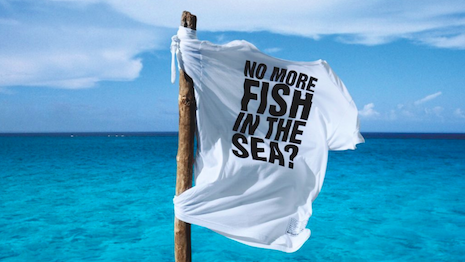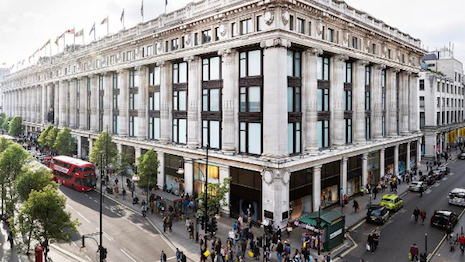 Selfridges is no longer selling plastic soda bottles. Image credit: Selfridges
Selfridges is no longer selling plastic soda bottles. Image credit: Selfridges
British department store chain Selfridges is furthering its sustainability efforts by removing carbonated drinks in plastic bottles from its stores.
Part of its Project Ocean campaign, this latest move from the retailer follows other drink-related measures, including banning disposable water bottles and recycling coffee cups. Beyond boosting its own environmental impact, Selfridges is aiming to lead by example, hoping to inspire other stores to cut out plastic.
Plastic prevention
According to The Times, Selfridges sold 500,000 drinks in plastic bottles in 2017.
The retailer is looking to reduce that figure by stopping the sale of sodas and other carbonated drinks in plastic bottles within its stores starting this week. Selfridges will instead encourage consumers to pick aluminum cans or glass bottles as alternatives.
Now in its eighth year, Project Ocean is committed to the #OneLess campaign, whose mission revolves around reducing the use of plastic bottles.
In 2015, Selfridges stopped selling water in plastic bottles, encouraging consumers to pick a reusable option instead (see story).
Exterior of Selfridges' London store. Image credit: Selfridges
Each year, 400 million tons of plastic is produced, with only 10 percent of that recycled. Much of the plastic ends up in the oceans, impacting the marine ecosystem and the health of both fish and people through the food chain.
In addition to plastic, Selfridges has also taken on another trashy topic.
Selfridges prolongs the life of its paper coffee cups through an upcycle program.
Since 2017, the retailer has been recycling used coffee cups from its in-store dining options, as well its internal offices, and repurposing the paper goods into its iconic yellow shopping totes. The British retailer launched the upcycle program after scientific research found that paper cups could not be properly recycled, resulting in 2.5 billion paper cups used annually in the United Kingdom (see story).

